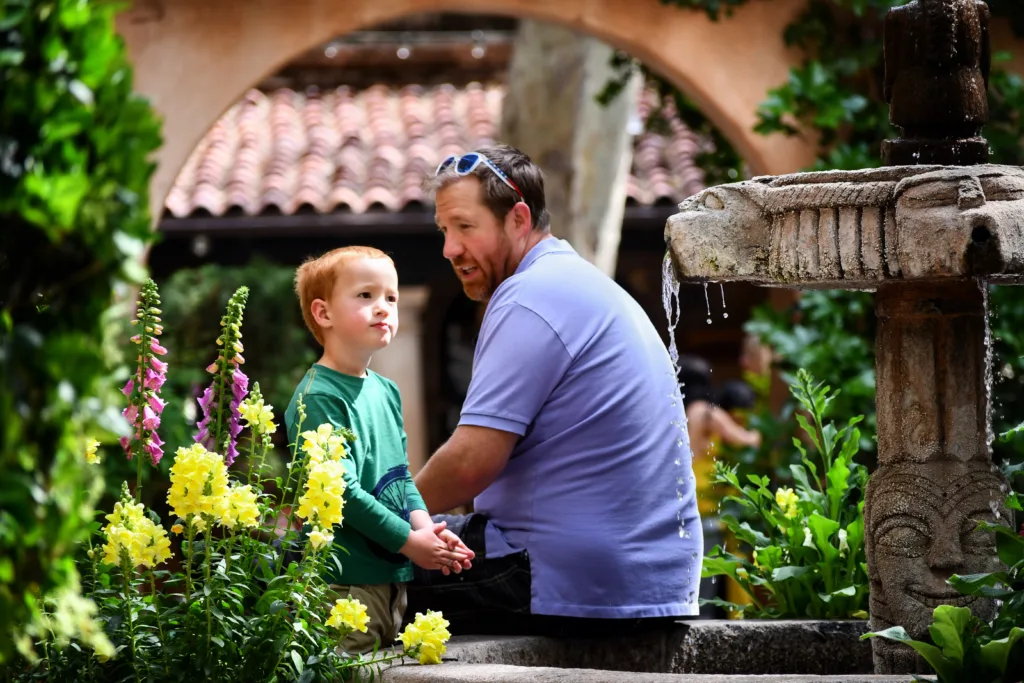Disciplining a child who disobeys can be a challenging task for any parent. It’s important to approach the situation with a calm and logical mindset, rather than reacting out of frustration or anger. In this article, we’ll explore some effective strategies for disciplining a child who disobeys, including the use of consistent consequences, natural consequences, and positive reinforcement.
One of the most important things to keep in mind when disciplining a child who disobeys is to use consistent consequences. Kids need to know what to expect when they don’t listen, so it’s important to establish clear rules and consequences ahead of time. For example, if your child refuses to clean their room, you might establish a consequence such as losing screen time or having to do an extra chore. It’s important to follow through with these consequences consistently, so that your child understands that there are real consequences to their actions.
In addition to uing consistent consequences, it can be helpful to embrace natural consequences whenever possible. Natural consequences are consequences that are specific to the offense and logical. For example, if your child refuses to wear a jacket on a cold day, they will likely feel cold and uncomfortable. By allowing natural consequences to occur, kids have a better chance of modifying their behavior in the future.
Another effective strategy for disciplining a child who disobeys is to praise the right actions, not just punish the wrong behaviors. Make a habit of praising your child when they make good decisions, such as following through on a task or showing kindness to a sibling. By focusing on positive reinforcement, you can help to build your child’s confidence and encourage good behavior in the future.
When dealing with defiance in children, it’s also important to set clear expectations and get to the root of the behavior. Try to understand why your child is disobeying, whether it’s due to a lack of understanding, a desire for attention, or something else. By addressing the underlying issue, you can help your child to develop better coping mechanisms and avoid future disobedience.
It’s also important to set your child up for good behavior by providing structure and routine. Make sure your child is getting enough sleep, eating healthy foods, and getting enough exercise. Establishing clear boundaries and routines can help your child to feel more secure and less likely to act out.
When disciplining a child who disobeys, it’s important to treat your child as you would want to be treated. Avoid yelling or using physical punishment, as these tactics can often backfire and lead to further disobedience. Instead, try to stay calm and use a firm but kind tone of voice when enforcing consequences.
Disciplining a child who disobeys can be a challenging task, but by approaching the situation with a calm and logical mindset, using consistent consequences, and embracing positive reinforcement, you can help your child to develop better behavior and avoid future disobedience. Remember to set clear expectations, get to the root of the behavior, and treat your child with kindness and respect. By following these strategies, you can help your child to grow into a happy and well-behaved individual.
Disciplining a Child Who Refuses to Listen
Disciplining a child who won’t listen can be a challenging task for parents. However, there are some effective strategies that can help parents to discipline their child effectively. Here are some do’s of disciplining a child who won’t listen:
1. Use consistent consequences: Consistency is key when it comes to disciplining a child who won’t listen. Parents should use logical consequences that are consistent with the child’s behavior. For example, if a child refuses to clean their room, the consequence could be that they lose their screen time for the day.
2. Listen to your child’s feelings: Sometimes, children may not listen because they feel misunderstood or unheard. Parents should take the time to listen to their child’s feelings and ask them kindly what’s going on. Acknowledging their side can help parents to understand their child’s perspective and find a solution that works for both parties.
3. Use positive reinforcement: Positive reinforcement can be a powerful tool when it comes to disciplining a child who won’t listen. Parents should praise their child when they exhibit positive behavior and provide rewards for good behavior.
4. Set clear boundaries: Children need clear boundaries to understand what is expected of them. Parents should set clear rules and expectations for their child and consistently enforce them.
5. Stay calm: It’s important for parents to stay calm when disciplining their child. Yelling or getting angry can escalate the situation and make it harder to resolve. Parents should take a deep breath and remain calm when addressing their child’s behavior.
In short, disciplining a child who won’t listen requires consistency, communication, positive reinforcement, clear boundaries, and remaining calm. By using these strategies, parents can effectively discipline their child and help them to learn approprate behavior.

Disciplining a Child Who Does Not Respond to Discipline
When it comes to disciplining a child who doesn’t respond to traditional forms of punishment, it’s important to consider alternative approaches. Here are some strategies that may be effective:
1. Embrace natural consequences: Instead of imposing arbitrary punishments, consider allowing your child to experience the natural consequences of thir behavior. For example, if they refuse to wear a coat on a cold day, let them feel the discomfort of being cold. When the punishment is specific to the offense and logical, kids have a better chance of modifying their behavior.
2. Use positive reinforcement: Don’t just punish the wrong behaviors. Make a habit of praising good decisions. When your child does something positive, offer specific and sincere praise. This will help to build their self-esteem and encourage them to make good decisions in the future.
3. Be consistent: Children thrive on routine and predictability, so it’s important to establish clear expectations and consequences for behavior. Stick to your rules and follow through with consequences when necessary.
4. Seek professional help: If your child’s behavior is particularly challenging or if you’re struggling to find effective discipline strategies, it may be helpful to seek the guidance of a professional. A therapist or child behavior specialist can help you develop a personalized plan that takes into account your child’s unique needs and challenges.
Remember, disciplining a child who doesn’t respond to traditional forms of punishment can be a difficult and frustrating process. But by remaining patient, consistent, and open to new strategies, you can help your child learn to make better choices and become a more responsible and respectful member of your family and community.
Getting a Defiant Child to Obey
Dealing with a defiant child can be a challenging experience for parents. It’s important to understand that defiance is a common behavior amng children and is often a sign of their growing independence. However, when your child’s defiance becomes a consistent pattern of behavior, it can be disruptive and frustrating for both you and your child.
Here are some tips that can help you get a defiant child to obey you:
1. Set Expectations: It’s important to set clear expectations and boundaries for your child. This will help them understand what is expected of them and what behaviors are not acceptable.
2. Get to the Root of the Behavior: Try to understand why your child is being defiant. Is there an underlying issue that needs to be addressed? Are they feeling neglected or frustrated? Understanding the root cause of the behavior can help you address it more effectively.
3. Set your Child Up for Good Behavior: Provide your child with opportunities to succeed. Set them up for success by giving them clear instructions and positive reinforcement for good behavior.
4. Treat Your Child As You’d Want to Be Treated: It’s important to treat your child with respect and understanding. Avoid using harsh language or punishment, as this can escalate the situation and make it more difficult to resolve.
5. Take Advantage of Your Child’s Verbal Skills: Talk to your child and listen to what they have to say. Encourage them to express their feelings and thoughts. This can help them feel heard and understood.
6. Establish Absolute Ground Rules: Some behaviors are simply not acceptable. Establish clear rules and consequences for breaking them. This will help your child understand that certain behaviors will not be tolerated.
7. Compromise When You Can: When possible, try to find a middle ground with your child. This can help them feel more in control and less likely to be defiant.
8. Discuss Options: When your child is being defiant, try to discuss options with them. This can help them feel more involved in the decision-making process and less likely to resist.
Dealing with a defiant child can be a challenging experience. However, by setting clear expectations, understanding the root cause of the behavior, and treating your child with respect and understanding, you can help them overcome their defiance and develop more positive behaviors.
Seven Ways to Discipline a Child
Disciplining a child can be a challenging task for any parent. However, it is essential for their growth and development. Here are seven ways to discipline a child:
1. Plan 1-on-1 time: Spending time with your child is crucial. One-on-one time helps you build a better relationship with them, and they will be more likely to listen to you when you need to discipline them.
2. Praise the positives: Children respond well to positive reinforcement. When your child does something good, praise them for it. This will encourage them to repeat the behavior.
3. Set clear expectations: Children need to know what is expected of them. Set clear rules and boundaries, and make sure your child understands them.
4. Distract creatively: If your child is misbehaving, try to distract them with something else. For example, if they are throwing a tantrum, offer them a toy or a snack.
5. Use calm consequences: If your child breaks a rule, there shold be consequences. However, it is crucial to remain calm when enforcing them. Yelling or hitting your child will only make the situation worse.
6. Be consistent: Consistency is key when disciplining a child. If you let them get away with something one day and punish them for it the next, they will be confused and less likely to follow the rules.
7. Be a good role model: Children learn by example, so it is essential to be a good role model. If you want your child to be respectful and well-behaved, you need to model that behavior yourself.

Conclusion
Disciplining a child who won’t listen can be a challenging task for any parent or caregiver. However, it is important to remember that punishment alone may not always be effective in modifying a child’s behavior. It is essential to establish clear expectations, praise positive actions, and use logical consequences that are specific to the offense. Additionally, taking the time to listen to your child’s feelings and addressing the root of their behavior can go a long way in fostering a healthy relationship and promoting good behavior. By implementing thse strategies, parents can create a positive and nurturing environment that encourages their child to make good decisions and thrive. Remember, parenting is a journey, and it takes time, patience, and consistency to raise happy and well-adjusted children.
